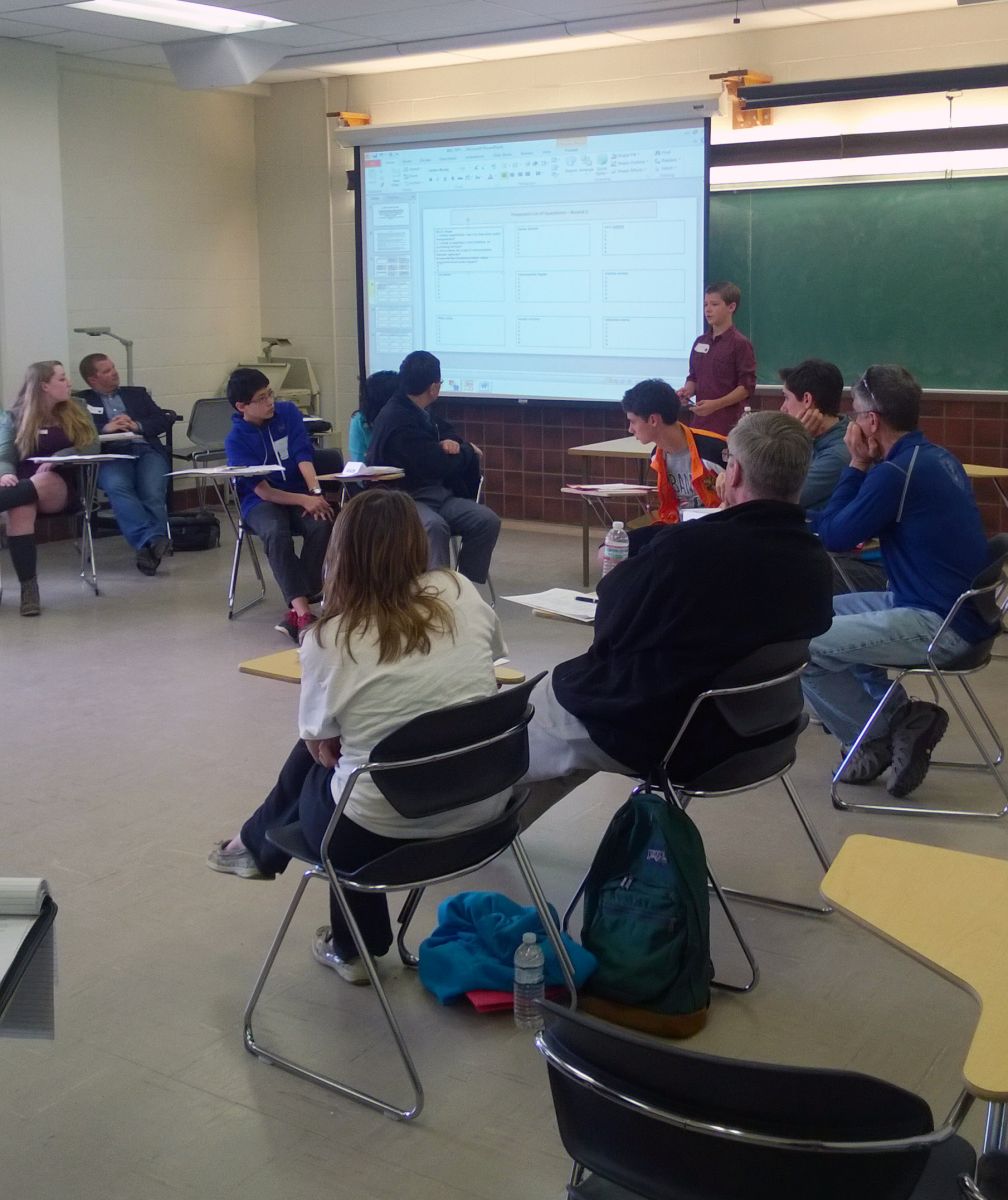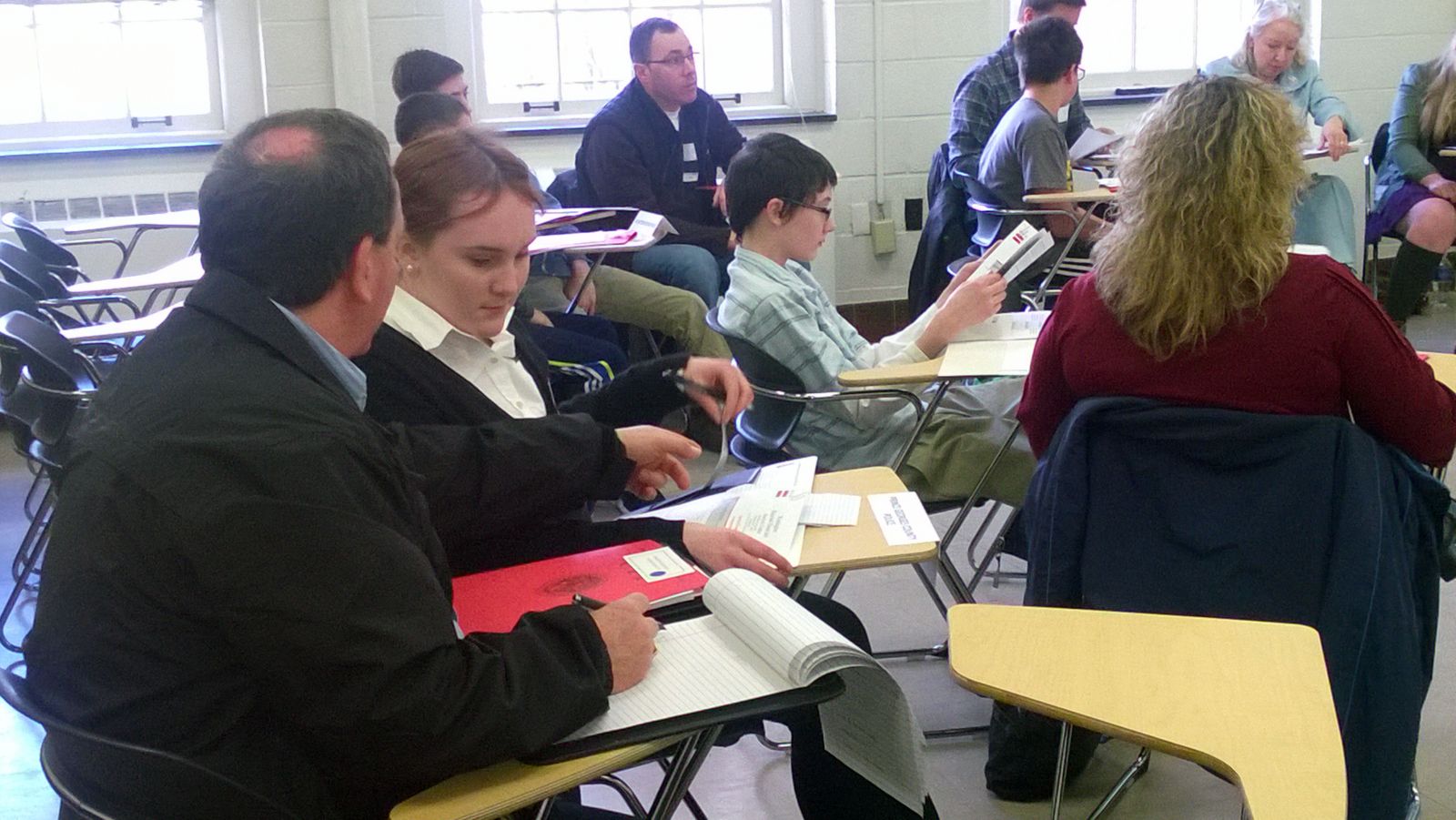About 50 middle and high school students and their parents joined the National Consortium for the Study of Terrorism and Responses to Terrorism (START) at its headquarters this month to learn about the causes and consequences of terrorism, as well as emergency management and preparedness. START staff and researchers offered lectures on the terrorist threat, the intelligence community, risk communication and counterterrorism policy.
Students were then put to the test as they played the roles of intelligence analysts, emergency responders and policymakers as they prepared for, mitigated and responded to a fictitious terror attack in a simulation set in Washington, D.C. Designed by START’s education team, the simulation aimed to teach the students to collaborate, think outside of the box and remain calm under pressure.
“It’s a unique challenge to work with a generation of students who were born right around or after September 11, 2001 -- it’s not the same frame of reference for them as it is for students and individuals who experienced and remembered this event first hand,” said Dr. Kate Izsak, START Associate Director for Education. “The students were challenged but rose to the occasion and completed all of the simulations with success.”
The students are a part of the Center for Talented Youth (CTY) gifted education program based at Johns Hopkins University. CTY chose START to host one of its Family Academic Programs to offer an engaging educational opportunity to gifted students and their parents to further encourage educational achievement and social development.
“These young and bright students are eager to learn and it is a great opportunity to capitalize on their motivation, expose them to what we do at START, and provide a hands-on educational experience that will likely shape their future academic and career goals,” Izsak said.
Throughout t he program at START, families had the opportunity to reflect on larger questions as well, such as how terrorist attacks affect communities and how communities can respond in different ways to terrorism.
he program at START, families had the opportunity to reflect on larger questions as well, such as how terrorist attacks affect communities and how communities can respond in different ways to terrorism.
”I get to do a fair amount of teaching and lecturing,” said William Braniff, STARTS’s executive director, “and these students were exceptionally perceptive. At the very beginning of the program I asked them to ‘change places with START researchers’ and design their own research questions. Their suggestions very closely reflected the multidisciplinary research agenda on-going at START.”
The students and families had come from across the country to participate in the program; one flew in from California just for the event. The student said he attended because his dad, who is pursuing a master’s degree focused on counterterrorism and public health, is his role model and has inspired him to learn about this extremely relevant and important topic.
“The students worked with their parents throughout the day, and watching this particular parent-student team was especially rewarding as they worked together to lead one of the final simulations of the day,” said Jacqueline DeVore, START education coordinator.
